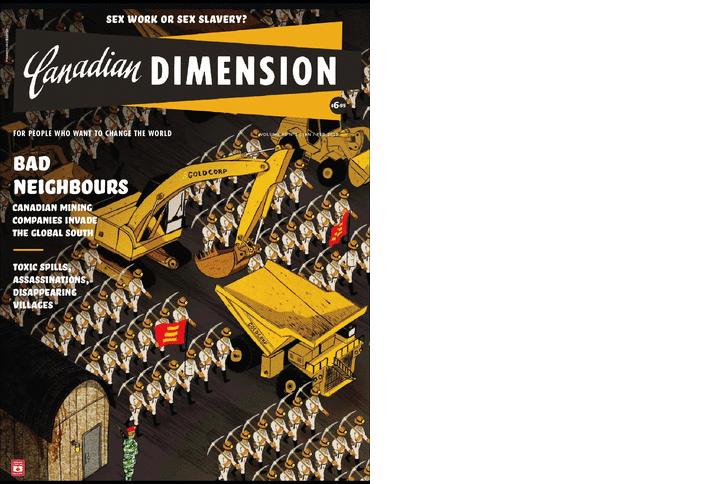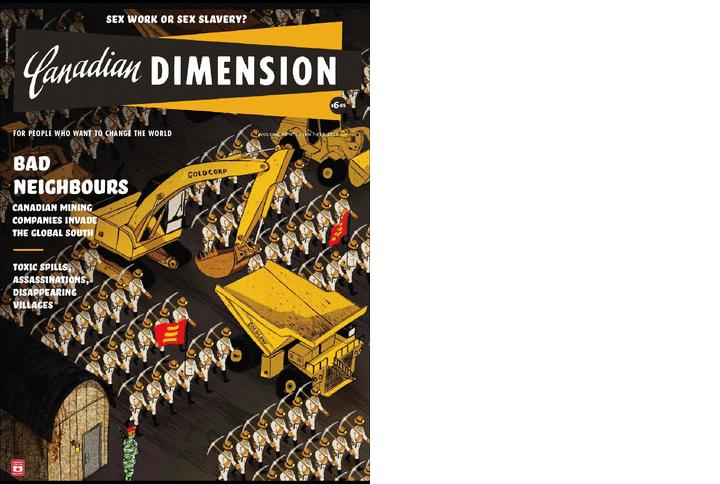Armine Yalnizyan is a senior economist with the Canadian Centre for Policy Alternatives. The Progressive Economics Forum aims to promote the development of a progressive economics community in Canada. The PEF brings together over 125 progressive economists, working in universities, the labour movement, and activist research organizations.
“Vale can’t escape scrutiny. Look at what they do in Thompson. This will be looked
at around the world. A Zambian mining president during the strike in Sudbury said if
this is the way they treat people in the first world we don’t want Vale in Zambia, in the
third world.” (Steve Ashton, MLA for Thompson, Manitoba)
Last fall Premier Danny Williams wondered what could drive anyone to let hundreds of millions of dollars slip through their fingers. Last week he got his answer.
The Roil report on the 18-month strike at Voisey’s Bay nickel mine in northern Labrador is an eye-opening case study in 21st century globalization, and has the potential to be a game-changer. It is the final output of an industrial inquiry commission appointed by now-ex-Premier Williams in October 2010.
At that time about 240 United Steelworkers had been on strike against global mining giant Vale since August 2009, labour relations had become toxic, and Innu and Inuit communities finally poised to make economic gains had become tragically split down the middle.
The commissioners reported that Vale ultimately lost an estimated $500 million to $1 billion in operating revenues; the workers lost over $9 million in wages over 2009 and 2010; the union spent about $4 million in legal fees, staff supports and strike pay; and Newfoundland and Labrador’s GDP took at 1.4% hit in 2009, 2.6% in 2010.

























